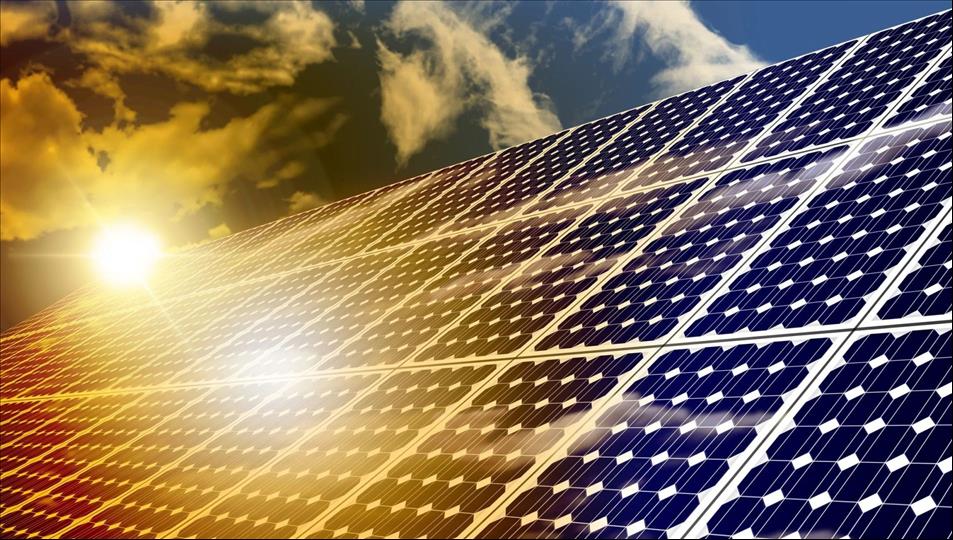
Azerbaijan's Growing Green Energy Initiatives: Solar Power's Role In Shaping Sustainable Future
The global push towards alternative energy has become more pronounced in recent years as nations strive for a cleaner and more sustainable future. Countries rich in natural resources, including Azerbaijan, are also acknowledging the need for a green energy transition. With its vast oil and gas reserves, Azerbaijan has long been a key player in the hydrocarbon sector. However, recognizing the looming challenges posed by climate change, the country is increasingly embracing renewable energy. As part of this vision, Azerbaijan has declared its commitment to sustainability, marked by the declaration of 2024 as "The year of solidarity for a green world." This shift towards a more environmentally conscious energy policy was further underscored by Azerbaijan hosting the global climate event COP29, signaling its alignment with international efforts to address climate change.
Azerbaijan's renewable energy strategy has been particularly focused on solar power, a resource with immense potential in the country's sunny climate. Over the past year, the country has seen a notable rise in solar energy installations, contributing to the broader green energy push. In collaboration with the global energy giant ACWA Power, several large-scale solar projects have been launched, particularly near the Khizi-Absheron wind power plant currently under construction. The introduction of solar panels in these areas is expected to play a crucial role in meeting Azerbaijan's green energy targets, further demonstrating the country's growing commitment to renewable sources.
Azerbaijan's recent achievements in solar energy production are particularly noteworthy. In the first half of 2024 alone, solar energy output surged dramatically-by nine times compared to the previous year-reaching a record 286.6 million kilowatt-hours (kWh). This remarkable growth highlights the rapid expansion of solar energy in the country. Overall, green energy production, which includes wind and solar power, increased significantly, nearly doubling compared to the same period in 2023. These advancements signal the beginning of a transformative energy landscape in Azerbaijan, driven by renewable resources.
The expansion of solar and wind power projects is set to accelerate in the coming years. By 2027, Azerbaijan plans to commission nine new solar and wind power plants, which collectively will have a total capacity of 2 gigawatts (GW). This is just the beginning: by 2030, Azerbaijan aims to build an additional 10 renewable energy plants, bringing the total potential capacity to an impressive 5 GW. These projects will significantly reduce the country's reliance on fossil fuels and further enhance its energy security.
The partnership between Azerbaijan and ACWA Power also extends to wind energy. In 2022, the Azerbaijani Ministry of Energy signed a Memorandum of Understanding (MoU) with ACWA Power, aimed at exploring the potential for offshore wind energy projects. The strategic collaboration has already yielded significant results, with the ongoing construction of the 240 MW Khizi-Absheron Wind Power Station. This will be Azerbaijan's largest renewable energy installation when completed in 2025. Once operational, the station is expected to produce one billion kilowatt-hours of electricity annually, which will save approximately 220 million cubic meters of natural gas and prevent the release of over 400,000 tons of carbon dioxide into the atmosphere. The project serves as a key milestone in Azerbaijan's green energy transition.
The growing solar and wind energy infrastructure in Azerbaijan holds great promise not only for the environment but also for the economy and society. As the country moves towards a more sustainable energy mix, the reduction in greenhouse gas emissions and the preservation of natural resources will be significant contributions to global climate efforts. Economically, the development of renewable energy technologies will create new jobs, foster innovation, and stimulate investment in green industries. Socially, renewable energy projects are expected to improve energy access in rural and remote regions, contributing to local development and enhanced living standards.
Azerbaijan's green energy initiatives are also in line with international climate commitments, particularly the Paris Agreement. By investing in solar, wind, and other renewable sources, Azerbaijan is making important strides towards its goal of reducing carbon emissions and transitioning to a more sustainable energy system. The country's bold efforts demonstrate its willingness to invest in a cleaner future, not just for itself, but for the global community as well.
In conclusion, Azerbaijan is at a pivotal moment in its energy journey. The country is leveraging its abundant natural resources, including the sun and wind, to create a more sustainable energy future. With solar power production increasing rapidly and large-scale wind and solar plants under development, Azerbaijan is positioning itself as a regional leader in green energy. Through its partnership with ACWA Power and other international stakeholders, Azerbaijan is not only diversifying its energy sources but also contributing to the global fight against climate change. As the country continues to expand its renewable energy infrastructure, it is clear that Azerbaijan is committed to a greener, more sustainable future-one where both economic growth and environmental stewardship go hand in hand.
Legal Disclaimer:
MENAFN provides the
information “as is” without warranty of any kind. We do not accept
any responsibility or liability for the accuracy, content, images,
videos, licenses, completeness, legality, or reliability of the information
contained in this article. If you have any complaints or copyright
issues related to this article, kindly contact the provider above.


















Comments
No comment